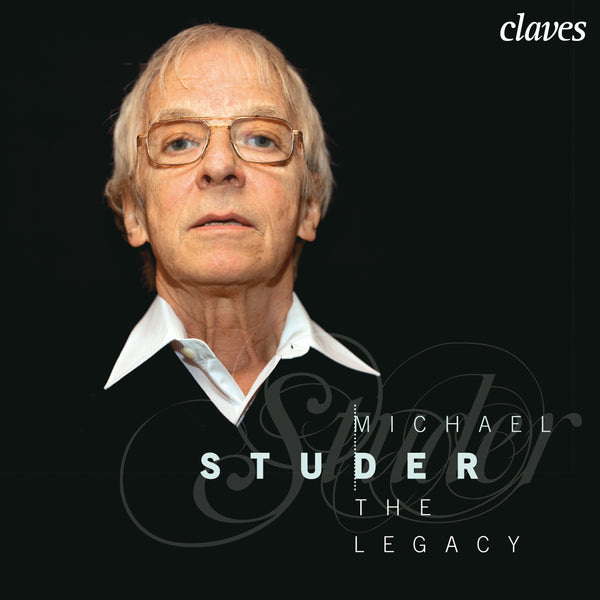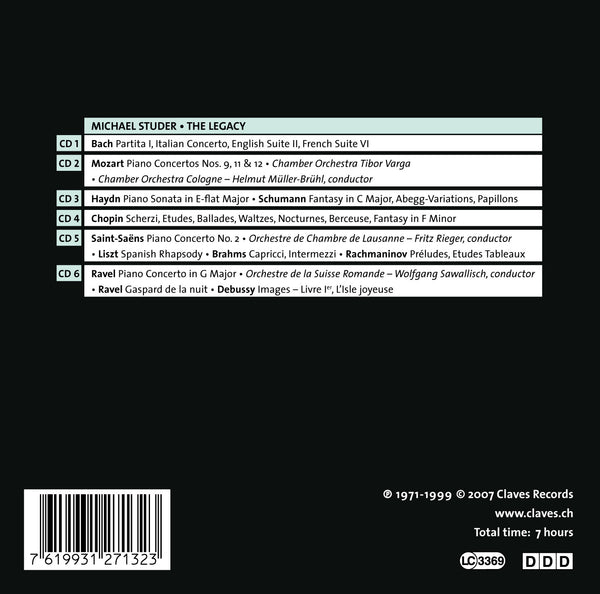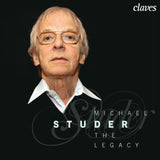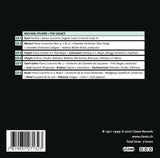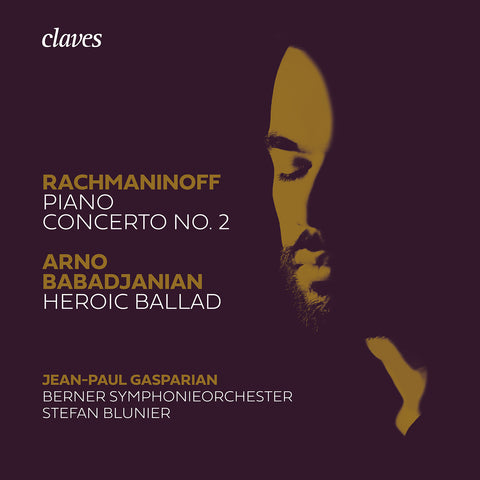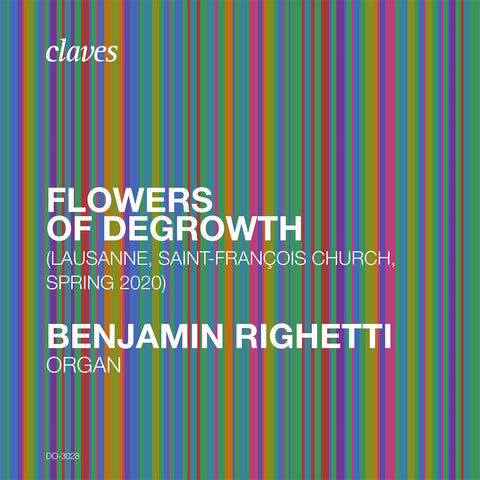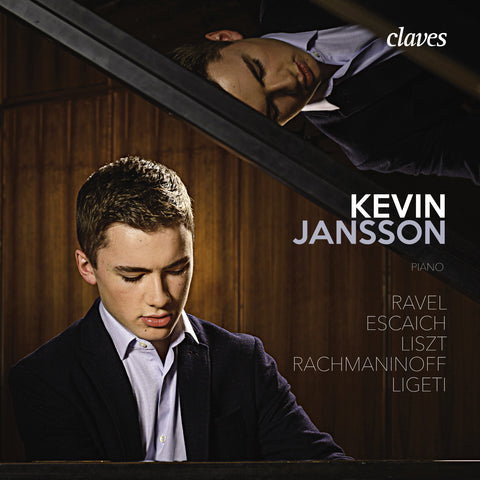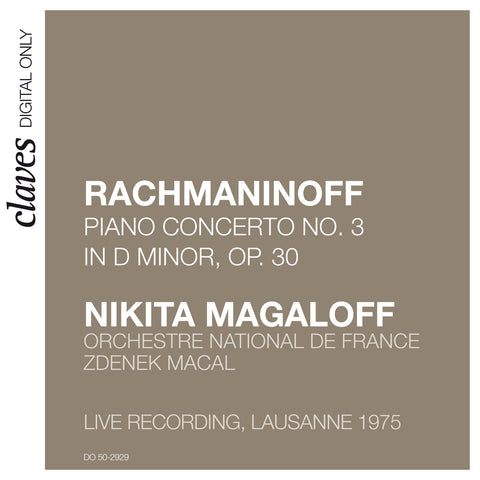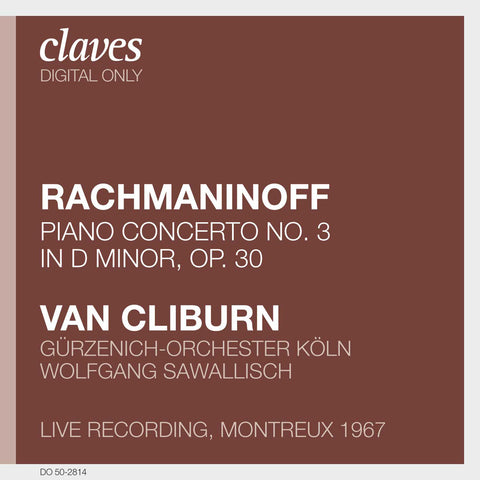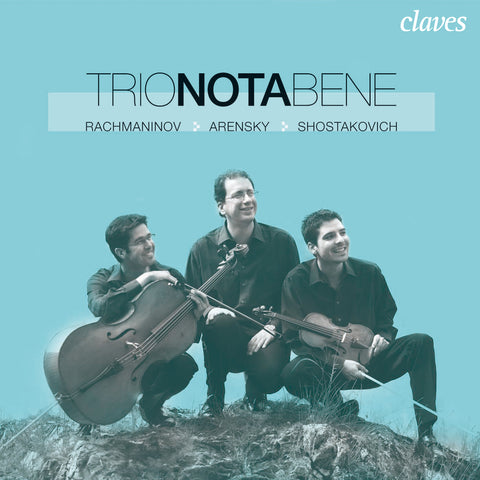(2007) The Legacy
Nb CD(s): 6
N° de catalogue:
CD 2713-18
Sortie: 2007
EAN/UPC: 7619931271323
- UPC: 829410478175
Cet album est en repressage. Précommandez-le dès maintenant à un prix spécial.
CHF 65.00
Cet album n'est plus disponible en CD.
Cet album n'est pas encore sorti. Précommandez-le dès maintenant.
CHF 65.00
Cet album n'est plus disponible en CD.
Cet album n'est plus disponible en CD.
TVA incluse pour la Suisse et l'UE
Frais de port offerts
Cet album est en repressage. Précommandez-le dès maintenant à un prix spécial.
CHF 65.00
Cet album n'est plus disponible en CD.
This album has not been released yet.
Pre-order it at a special price now.
CHF 65.00
Cet album n'est plus disponible en CD.
Cet album n'est plus disponible en CD.
THE LEGACY
*** Clé du Mois ResMusica ***
At a dismal time of unadulterated virtuosity and product marketing; Michael Studer’s unique art is particularly comforting. Indifferent to trends; his piano and his music speak to the heart with candor and simplicity. Many performers; including some of the greatest; match themselves against the composer; attempting to impose and stage themselves. Michael Studer has chosen a different path.
His sovereign mastery of his instrument allows for a freedom of expression and subtle musicality that lets the composer speak through him; as Dinu Lipatti did. “Content” with a repertoire less trodden; there are certain works that he is particularly fond of; and his love for these works is manifest in profound interpretations played with incomparable authenticity; musicality and finesse.
His recording of Gaspard de la Nuit is a superlative example in this respect; reproduced here from one of his first LP recordings dated 1971. Never before has the poet’s fantastic vision; transcribed by the composer; sounded so unified and pure. Aloysius Bertrand and Maurice Ravel are inseparably reunited here.
And although virtuosity is omnipresent in this short masterpiece; it remains inconspicuous; appearing only as flashes to add touches of color or fantasy. Ravel’s Concerto in G (superbly accompanied by the great Sawallisch) and Saint-Saëns’ Second Piano Concerto; both recorded live; as well as three excerpts from Claude Debussy’s first book of Images; round off these moments of French grace and elegance in which emotions and frivolity are entwined.
Music lesson
The music lesson continues in the recordings of Mozart’s three concertos (Claves will release others in its Digital Only collection). A spartan style and genuine humility are the guiding elements here which allow the music to return to the infinity where it originated. Without excess or affectation but appearing wise and classical; overflowing with nuances and offering the listener continued delight.
The same qualities can be found in the performance of Haydn’s Sonata in E-flat Major; spontaneous and jubilant. Bach’s Suites; Partita and Italian Concerto are likewise without ascesis; performed on a modern piano and employing its complete range of expression; but without complaisance or nostalgic reminiscence of the harpsichord.
The combination of pieces from Brahms’ Opuses 116 to 118 or of various Preludes and Etudes by Rachmaninov; as explained by the musician in his notes; provides a fascinating illumination of these works by way of the contrasts and the variety of emotions. These; too; are splendid performances without the slightest emphasis of effort; often an excuse for meaningless virtuosity; but finding here as part of a whole renewed expressivity.
Simplicity
The disc featuring Chopin; the last recording dated 1999; is similar in its subtle juxtaposition of tastes; as if a gourmet menu. And the citation in the notes by Studer is well justified: “the bad habit of many pianists of performing a complete opus instead of making a personal selection can only be detrimental to the effect that these lyrical works can have”. Michael Studer is not in bad company: one could never reproach Horowitz for having performed the Scherzi; Ballades or Etudes in their entirety in a single concert or on one recording.
This box of six recordings is a homage to a great pianist and a unique musician; loved by his audiences; forced to leave the stage far too early; but who left us a precious legacy marked by a rich; profound and respectful simplicity.
Olivier Verrey
(Translation: Mark Manion)
*** Clé du Mois ResMusica ***
At a dismal time of unadulterated virtuosity and product marketing; Michael Studer’s unique art is particularly comforting. Indifferent to trends; his piano and his music speak to the heart with candor and simplicity. Many performers; including some of the greatest; match themselves against the composer; attempting to impose and stage themselves. Michael Studer has chosen a different path.
His sovereign mastery of his instrument allows for a freedom of expression and subtle musicality that lets the composer speak through him; as Dinu Lipatti did. “Content” with a repertoire less trodden; there are certain works that he is particularly fond of; and his love for these works is manifest in profound interpretations played with incomparable authenticity; musicality and finesse.
His recording of Gaspard de la Nuit is a superlative example in this respect; reproduced here from one of his first LP recordings dated 1971. Never before has the poet’s fantastic vision; transcribed by the composer; sounded so unified and pure. Aloysius Bertrand and Maurice Ravel are inseparably reunited here.
And although virtuosity is omnipresent in this short masterpiece; it remains inconspicuous; appearing only as flashes to add touches of color or fantasy. Ravel’s Concerto in G (superbly accompanied by the great Sawallisch) and Saint-Saëns’ Second Piano Concerto; both recorded live; as well as three excerpts from Claude Debussy’s first book of Images; round off these moments of French grace and elegance in which emotions and frivolity are entwined.
Music lesson
The music lesson continues in the recordings of Mozart’s three concertos (Claves will release others in its Digital Only collection). A spartan style and genuine humility are the guiding elements here which allow the music to return to the infinity where it originated. Without excess or affectation but appearing wise and classical; overflowing with nuances and offering the listener continued delight.
The same qualities can be found in the performance of Haydn’s Sonata in E-flat Major; spontaneous and jubilant. Bach’s Suites; Partita and Italian Concerto are likewise without ascesis; performed on a modern piano and employing its complete range of expression; but without complaisance or nostalgic reminiscence of the harpsichord.
The combination of pieces from Brahms’ Opuses 116 to 118 or of various Preludes and Etudes by Rachmaninov; as explained by the musician in his notes; provides a fascinating illumination of these works by way of the contrasts and the variety of emotions. These; too; are splendid performances without the slightest emphasis of effort; often an excuse for meaningless virtuosity; but finding here as part of a whole renewed expressivity.
Simplicity
The disc featuring Chopin; the last recording dated 1999; is similar in its subtle juxtaposition of tastes; as if a gourmet menu. And the citation in the notes by Studer is well justified: “the bad habit of many pianists of performing a complete opus instead of making a personal selection can only be detrimental to the effect that these lyrical works can have”. Michael Studer is not in bad company: one could never reproach Horowitz for having performed the Scherzi; Ballades or Etudes in their entirety in a single concert or on one recording.
This box of six recordings is a homage to a great pianist and a unique musician; loved by his audiences; forced to leave the stage far too early; but who left us a precious legacy marked by a rich; profound and respectful simplicity.
Olivier Verrey
(Translation: Mark Manion)
Return to the album | Main Artist: Michael Studer
Albums populaires
Camille Saint-Saëns
Chamber Orchestra Tibor Varga
Claude Debussy (1862-1918)
Clé du mois - ResMusica
Co-productions RTS / Espace 2
Concerto
Disponible en ligne
Franz Liszt (1811-1886)
Frédéric Chopin (1810-1849)
Johann Sebastian Bach (1685-1750)
Johannes Brahms (1833-1897)
Joseph Haydn (1732-1809)
Maurice Ravel (1875-1937)
Michael Studer - piano
Orchestral
Orchestre de Chambre de Lausanne (OCL)
Orchestre de la Suisse Romande (OSR)
Piano
Releases 2006 - 2008
Robert Schumann (1810-1856)
Sergueï Rachmaninov
Tibor Varga
Tous les albums
Wolfgang Amadeus Mozart (1756-1791)
Wolfgang Sawallisch
Albums populaires
Camille Saint-Saëns
Chamber Orchestra Tibor Varga
Claude Debussy (1862-1918)
Clé du mois - ResMusica
Co-productions RTS / Espace 2
Concerto
Disponible en ligne
Franz Liszt (1811-1886)
Frédéric Chopin (1810-1849)
Johann Sebastian Bach (1685-1750)
Johannes Brahms (1833-1897)
Joseph Haydn (1732-1809)
Maurice Ravel (1875-1937)
Michael Studer - piano
Orchestral
Orchestre de Chambre de Lausanne (OCL)
Orchestre de la Suisse Romande (OSR)
Piano
Releases 2006 - 2008
Robert Schumann (1810-1856)
Sergueï Rachmaninov
Tibor Varga
Tous les albums
Wolfgang Amadeus Mozart (1756-1791)
Wolfgang Sawallisch







